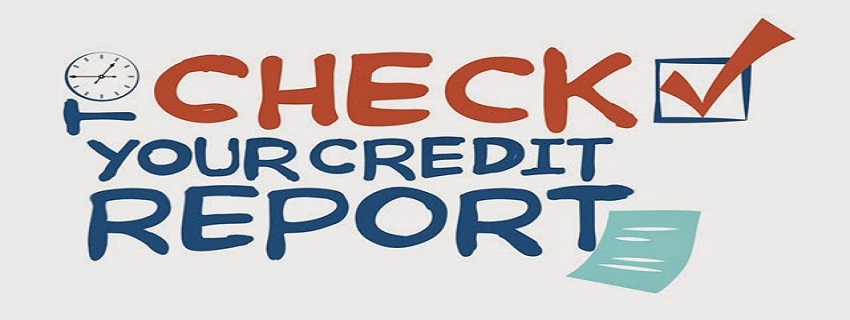Understanding the Facts and Fallacies of Credit information Companies in India
A relatively better economy, ever-growing number of businessmen and new industries, increasing disposable incomes, the desire of owning a couple of real estate properties in the individuals, and the availability of unmatchable variety when it comes to lifestyle and choice of brands are some key reasons that have led to an incredible outflow of money. This has certainly led to the transformation of today’s age in an age of intrepid and full hearted spending. The present day generation, as a matter of fact, is spending even more than their parents or grandparents ever spent in their respective timelines.
As money rotation is a key aspect of the progressive Indian economy, the other side of the seesaw is held by excessive lending. Lending money has always been a risky business. People lending money to their friends or acquaintances, with a promise to get the money back in a matter of days, and not being able to retrieve their balance in due course of time has been a common problem for many years. The big lending institutions like banks, mortgage companies, credit card providers and other creditors also take the same kind of risk when giving loans to customers, financing their home purchase or issuing extra credit to the card holders. Though the lending practices might have remained unchanged for years, it is the manner in which the lending division of today’s financial world works that has undergone a major transformation in the last few years.
The Dawn of Credit Information Companies
In the present day financial arena, the creditors try their best to minimize their lending risks through careful examination of the borrowers’ credit history. Any individual, who has ever applied for any kind of a loan or has owned and used a credit card, will have a credit history. The credit history of every borrower is collected and maintained regularly by the credit information companies. These credit information companies collect the personal and financial information of the borrowers regularly from their members which are banks, credit card providers, mortgage providers, non-banking finance companies, housing finance corporations, and state owned and operated financial corporations to create a detailed credit report of every individual. It is on the basis of this collective information that the credit score of an individual is calculated.
As for now, there are four primary Credit information companies in India including Credit Information Bureau (India) Ltd. (CIBIL), Experian Credit Information Co. of India Pvt. Ltd, Highmark Credit Information Services Pvt. Ltd, and the Equifax Credit Information Services Pvt. Ltd. Every time an individual applies for a loan, the members associated with these companies make use of the information present in the repository for review the credit report and score of the borrower, and interpret the data in a manner which is in their best interest. It is on the basis of this interpretation that the bank’s decision to extend a loan to the borrower or not will depend.
The Common Myth
Of all these agencies, CIBIL is India’s first credit information company and the one with the most number of associated members. Credit information Companies are, no doubt, the most powerful institutions in the world of credit, but they certainly do not make or spoil the credit rating of any individual. People, generally, have a viewpoint that agencies like CIBIL maintain a blacklist of defaulters and having a name in the CIBIL database is a bad thing.
As a matter of fact, CIBIL doesn’t maintain a list of loan defaulters. All those individuals who have taken any kind of credit or loan from any financial institution will have their names included in CIBIL database. Whether they are paying their debts on time or not, their name will be with CIBIL in any case. CIBIL is only a repository of information that is primarily pooled in from all the banks and lending institutions in India. It collects and maintains the records of the borrowings and payments of the individuals, and shares this information with the banks and credit institutions for evaluating their credit card and loan applications. The credit information reports are interpreted by the financial institutions as per their own credit policies and CIBIL has no role to play in classifying a borrower as a defaulter.
The CIBIL Objective
CIBIL was mainly established with an objective of not only helping the banks and lending institutions to make sound decisions, but also to empower the customers by helping them keep a tab on their credit score, become more credit oriented and get faster approvals for loans. CIBIL helps the borrowers in understanding the manner in which lender evaluates their loan or credit applications, so that they can apply at the time when their credit score is good and there won’t be any chance to get the application rejected.
Borrowers don’t need to file a credit report along with their loan application. It is for the own benefit of the borrowers so that they can keep a tab on their borrowings and repayments. Here is a quick guide for the individuals who want to know more about CIBIL score and apply for their credit information report.
What is a CIBIL Credit Score?
CIBIL credit scores can be understood as a 3 digit numeric outline of the credit history of the individuals and commercial establishments. The credit score is calculated by CIBIL after considering the borrowing history, current borrowing details, pattern of repayment and instances of default, if any, of the borrowers. Normally, the credit score is scaled in between a range of 300 to 900 points. The higher the credit score (above 700) the better and easier it will be for the borrowers to obtain loans.
What is a CIBIL Credit Report and What Information does it include?
A CIBIL credit report of the borrower primarily carries a monthly record of the borrower’s credit card payments and loan related EMI payments. The credit report also highlights some other pieces of information, which includes personal details of the borrower, account information of the individual like the kind of loan taken (personal, home, auto or overdraft), the amount of loan, the current outstanding balance, the amount that is overdue (if any) and the number of days by which a payment is overdue (in case there is an overdue balance), and detailed information on the number of inquiries made by CIBIL members on the credit history of the borrower.
What is the Procedure to Obtain a Credit Report?
For borrowers who want to know about their credit history, CIBIL provides the service of applying for the CIR report online by filling in a Request Form. Once the form is duly filled, the individual needs make an online payment of Rs.470 in favor of CIBIL India. Upon making the payment, the borrowers need to take a print out of the CIR Request Form and mail it along with the identity and address proof on the address given at the website.
In case the borrowers wish to make offline payments, they need to purchase a demand draft of Rs.470 in the favor of “Credit Information Bureau (India) Limited” payable at Mumbai. For obtaining a CIR report, the borrowers need to download a request form from the CIBIL website and send the duly filled form, along with the demand draft, a valid identity proof and address proof to the address mentioned on the website.




